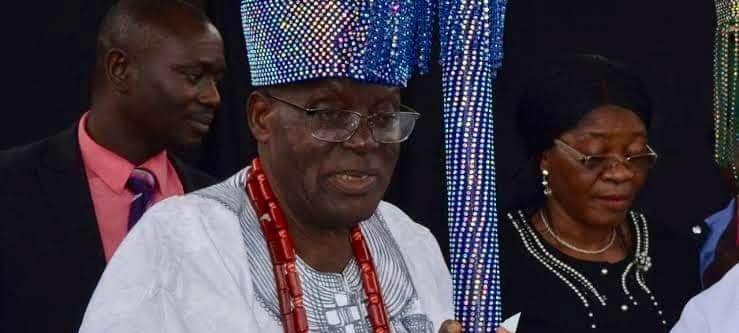The Chief of Army Staff, Lieutenant Tukur Buratai has congratulated newly promoted Nigerian Army Spokesman, Sagir Musa, who was among the officers promoted from Colonel to Brigadier General on Wednesday.
In a statement signed by the Army spokesman, now Brigadier General Sagir Musa,that the Army Council, on Wednesday the 25th of November 2020, approved the promotion of senior officers to the next ranks of Major General and Brigadier General respectively.
A total of 39 Brigadier Generals are lucky to be meritoriously promoted to Major General, while 97 Colonels have also been elevated to Brigadier General accordingly.
Those lucky to be promoted to Major General are – Brigadier General O O Oluyede, Acting Commander Sector 2 Operation LAFIYA DOLE, Damaturu, Brigadier General BR Sinjen Acting Director Operations, Army Headquarters Department of Training and Operations, Brigadier General AK Ibrahim Acting General Officer Commanding 7 Division Maiduguri, Brigadier General OR Aiyenigba Head Operations Monitoring Team Army Headquarters Abuja, Brigadier General SG Mohammed Commander 23 Brigade Yola, Brigadier General UU Bassey of the Army Resource Centre Abuja, Brigadier General KN Garba Office of the Chief Army Staff, Army Headquarters Abuja, Brigadier General A Bande Acting General Officer Commanding 8 Division Sokoto,
Brigadier General CV Eze Nigerian Army Special Projects, Office of the Chief of Army Staff,
Brigadier General KI Yusuf Acting Chief of Accounts and Budget of the Nigerian Army, Brigadier General SI Igbinowanhia Acting Commander Sector 3 Operation LAFIYA DOLE, Monguno.
Others are – Brigadier General H Ahmed Acting Provost Marshal (Army), Brigadier General AS Ndalolo Nigerian High Commission London, Brigadier General AA Fayemiwo Armed Forces Command and Staff College Jaji, Brigadier General IM Jallo Commander 63 Brigade Asaba, Brigadier General E Akerejola of Army Headquarters Department of Army Logistics, Brigadier General AJ Fagge Ministry of Defence Abuja, Brigadier General JO Ochai Nigerian Army Resource Centre Abuja, Brigadier General IS Ali Department of Defence Logistics Defence Headquarters Abuja, Brigadier General GU Chibuisi Headquarters 19 Brigade Baga, Brigadier General S Dahiru of Martin Luther Agwai International Leadership and Peace Keeping Centre Jaji, Brigadier General OO Soyele Defence Headquarters Abuja, Brigadier General ML Augie Nigerian Defence Academy Kaduna, Brigadier General PI Eze Headquarters Theatre Command Operation LAFIYA DOLE Maiduguri, Brigadier General BH Mohammed Commandant Nigerian Military School Zaria, Brigadier General EAP
Undiandeye Defence Intelligence Agency Abuja, Brigadier General MK Yunusa of Command Finance Office Apapa Lagos, Brigadier General AM Dauda National Defence College Abuja, Brigadier General JO Iwara Army Headquarters Department of Army Standards and Evaluation, Brigadier General MG Kangye, Brigadier General GB Audu Defence Headquarters, Brigadier General TT Numbere Post Housing Development Limited Abuja, Brigadier General R Abubakar of Defence Headquarters Abuja, Brigadier General NC Ugbo Nigerian Army School of Signals Apapa Lagos, Brigadier General AI Taiwo 81 Military Intelligence Brigade Lagos, Brigadier General BH Tsoho Nigerian Army College of Education Ilorin, Brigadier General HG Tafida Nigerian Army School of Electrical and Mechanical Engineering Makurdi and Brigadier LM Zakari Nigerian Army College of Environmental Science and Technology Makurdi and Brigadier General BU Yahaiya Nigerian Defence Section Cairo.
Those Promoted to Brigadier General are –
Colonels BA Muhammadu of Defence Intelligence Agency Abuja, Colonel AA Egbejule Army Headquarters Department of Army Transformation and Innovation, UM Alkali of Army War College Nigeria, DC Bako (promoted Posthumously), AK Lawal Sector 3 Operation LAFIYA DOLE Monguno, ID Oloyede Depot Nigerian Army Zaria, AM Usman Army Headquarters Garrison Abuja, SM Uba of 401 Special Forces Command, Cross kauwa, AGL Haruna Commander 7 Division Garrison Maiduguri, AIM Lapai of 302 Artillery Regiment (General Support) Onitsha, OD Williams 244 Reconnaissance Battalion Saki, IA Ajose Training and Doctrine Command, Minna, OA Awolo Army Headquarters Department of Army Training and Operations, AM Grema 402 Special Forces Brigade Ngamdu, EA Orakwe Headquarters 5 Brigade Gubio, AA Idris of 1 Military Intelligence Brigade, Kaduna.
Also elavated to Brigadier General include – UG Yusuf of Army Headquarters Abuja, Department of Army Standards and Evaluation, MHB Manu Headquarters Infantry Corps Centre Jaji, D Dieke of Defence Industries Corporation of Nigeria Kaduna, JK Feboke Defence Headquarters Abuja, OS Obot Headquarters 404 Engineer Brigade Doma, Nasarawa, S
Musa Army Headquarters, Directorate of Army Public Relations, UG Simon Headquarters 33 Brigade Bauchi, JD Bulus Headquarters Command Finance Office Lagos, OB Davies Defence Headquarters, MA Sadiq Headquarters Operation LAFIYA DOLE Maiduguri, EA Obona Army Headquarters Garrison Finance, H Sarkin Fulani Army Headquarters Garrison Supply and Transport, OSA Fashina Sector 2 Military Intelligence Brigade Operation LAFIYA DOLE and Col E Egbe 303 Artillery Regiment (General Support) Jos.
Others include – IEE Akpaumontia Nigerian Defence Section Harare, IU Akpan Army War College Nigeria, MK Ibrahim Army Headquarters Department of Army Standards and Evaluation, Abuja, NUC Ogili 37 Brigade Garrison Maiduguri, A Rabiu Directorate of Army Recruitment Resettlement and Reserve Abuja, Col MCE Ejike of Sector 3 Operation DELTA SAFE Okrika, DK Zirkushu Headquarters 1 Brigade Gusau and OT Ojuoloruntaiye Defence Headquarters Communications, SA Emmanuel Headquarters 57 Signal Brigade Maiduguri among others.
The Chief of Army Staff, Lieutenant General Tukur Yusufu Buratai congratulates all the promoted officers and their families, and urged them to redouble their efforts to justify the confidence reposed in them..
Sagir Musa who hails from Katsina State was until the appointment acting Director of Army Public Relations was the spokesman of 82 Division, Enugu.
He replaced Brigadier General Sani Usman, who voluntarily retired from the service

 Business6 months ago
Business6 months ago
 celebrity radar - gossips4 months ago
celebrity radar - gossips4 months ago
 celebrity radar - gossips4 months ago
celebrity radar - gossips4 months ago
 Business3 months ago
Business3 months ago













